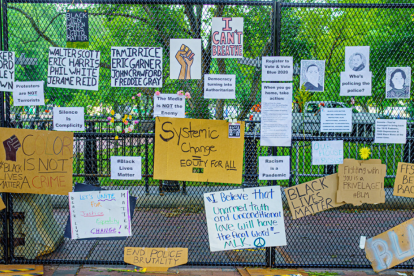DEI programs may increase hostility and 'racial tensions'
A new study by the Network Contagion Research Institute (NCRI) noted that "some 'anti-oppressive' DEI narratives can engender a hostile attribution bias and heighten racial suspicion, prejudicial attitudes, and authoritarian policing."

A new study by the Network Contagion Research Institute (NCRI) and the Social Perception Lab at Rutgers University suggests that corporate and university diversity, equity, and inclusion (DEI) programs are generating racial tensions and conflicting attitudes among those who implement them.
The research examined how certain DEI practices and narratives affect participants, concluding that some 'anti-racist strategies' may foster a "hostile attribution bias." That is, a predisposition to interpret the actions of others as intentional and harmful:
"The evidence presented in these studies reveals that, while purporting to combat bias, some 'anti-oppressive' DEI narratives can engender a hostile attribution bias and increase racial suspicion, prejudicial attitudes, authoritarian policing, and support for punitive behaviors in the absence of evidence of a transgression deserving punishment."
The study included texts by authors such as Ibram X. Kendi and Robin DiAngelo (who - without evidence - argue that racism and white supremacy are majoritarian, systemic and constant phenomena in society). After reading this material, participants showed increased levels of distrust regarding policies that include 'racial factors'.
According to Joel Finkelstein, co-author of the study and scientific director of NCRI:
And when people are supposed to see anti-racist material in ideology, it seems that what happens is that they're more likely to punish for any evidence of wrongdoing (...) That includes protesting people, calling for dismissal, demanding public apologies, receiving people calling for their relocation. These punitive measures are, in some cases, costing people their jobs.
Exaggerated perceptions of victimization
In addition, the report notes that narratives focused on these issues (such as so-called 'systemic oppression') can fuel exaggerated perceptions of victimization and foster unwarranted suspicions toward institutions and communities:
ISD narratives that focus heavily on victimization and systemic oppression can foster unwarranted distrust and suspicion of institutions and alter subjective evaluations of events.
The study also highlighted the impact of these practices in the workplace, where 52% of U.S. workers report attending IED-related training sessions, according to a 2023 report by the Pew Research Center. These practices, according to Finkelstein,can create a divisive work environment.
RECOMMENDATION





















